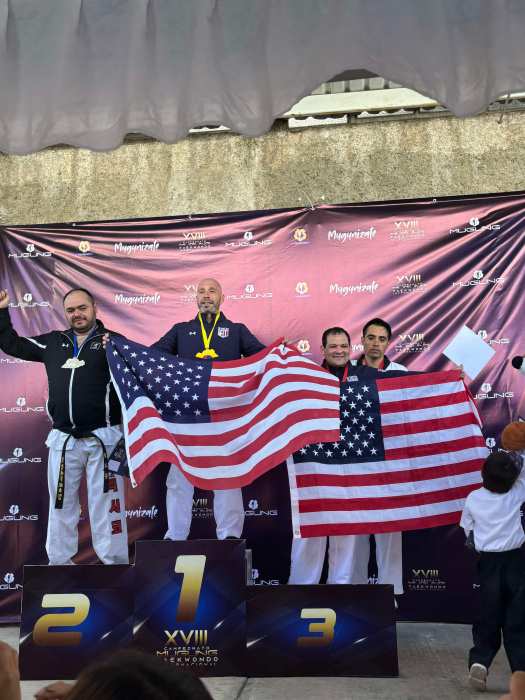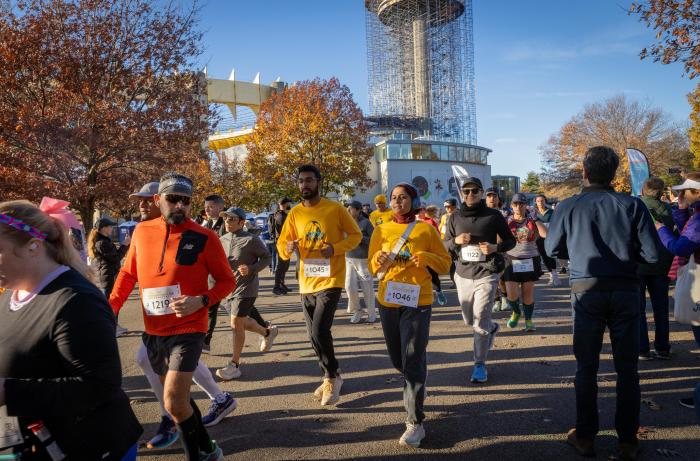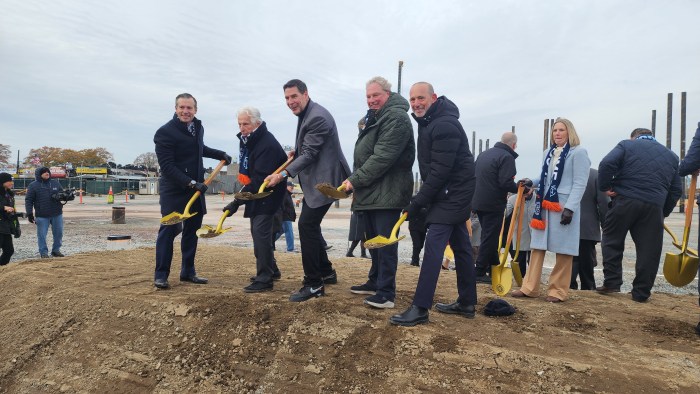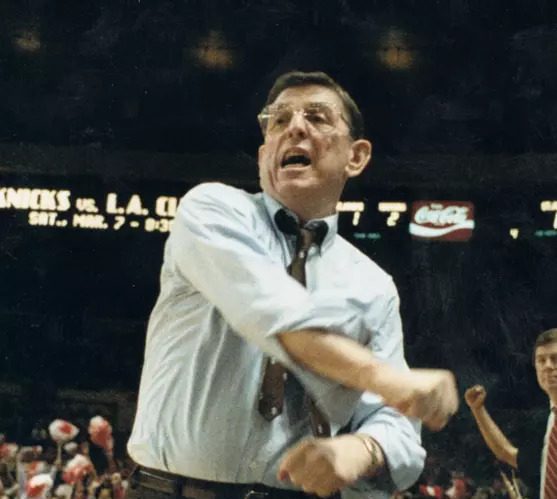Over the last three weeks, everybody connected to the Holy Cross basketball team has felt like they are on top of the world.
That is what winning the first city championship in 40 years will do for a program, not to mention beating the two previous champions, Rice and Christ the King, to get the crown.
However, nobody, not even star Sylven Landesberg – the All-American named Mr. New York Basketball who holds the Flushing school’s all-time scoring record – can relate to the euphoria Tyshawn Russell, the Knights’ sixth man, must feel.
That is because the 5-foot-11 guard was not even on the varsity last year. Last March, Russell, a senior, was averaging 20 points per game in anonymity, starring for the school’s varsity ‘B’ team in front of 10 spectators per game and at odd times.
Every morning, he set his alarm clock for 4 a.m., and rose to reach the school two hours later from his South Jamaica home for practice, called “6 a.m. pride” by those who partook.
“After a while it wore you out, but you had to keep going,” he said. “You can’t quit.”
Back in 1973, then coach Bill O’Meara established the ‘B’ program for those who did not make the varsity. Now, seven other city Catholic schools – including Christ the King and Archbishop Molloy in Queens – compete on the level.
Every season Holy Cross Coach Paul Gilvary tries to take a senior from that team as a reward for their hard work. But Russell was not a charity case.
Three years ago, he was one of the key reserves on a freshman team that finished second in the city to Christ the King. He broke the third metacarpal bone on his left hand his sophomore season, squashing any hopes of seeing time on the varsity the following year.
He never thought twice about playing on the lower level. It was his chance to improve and regain the confidence he felt before the injury. Despite his gaudy numbers, there were doubts. Many classmates, even former teammates, denigrated his performances. Those who knew Russell had better ideas.
“I thought he definitely should’ve been playing with us,” said Landesberg, who has known Russell since the seventh grade, dating back to their days with the Springfield Riffles. “I knew he was talented.”
It exemplified, Landesberg also added, how much the sport meant to Russell. He would rather improve on a team often derided than be respected for watching on the higher level.
“He didn’t care about who was in the stands, who was watching him,” the Virginia-bound guard said. “That really showed how much he wanted to play,”
It did not click on the varsity immediately. Russell had catching up to do since the Knights returned their entire starting five – all seniors – and several other reserves. There were also doubts – most inwardly – whether his skills would translate.
Gradually, he gained confidence, forcing his way into Gilvary’s rotation. In the postseason, he played well against the city’s top guards, teaming with starting point guard Blaise Ffrench to frustrate Christ the King’s Erving Walker and Rice’s Kemba Walker.
“I’m as comfortable with him as any of [our seniors],” Gilvary said. “He really proved to me he belongs.”
Now he is the first player off the bench, either to spell Ffrench or move him off the ball. He came up aces in the city championship, scoring four points down the stretch.
Every one of those points, Russell said, meant more to him than the big numbers he put up on the ‘B’ level. Yet, he readily admitted the very next moment, that it would not have been possible without that experience.
“It feels like I really accomplished something,” he said. “Because not everybody can do what I did.”



































